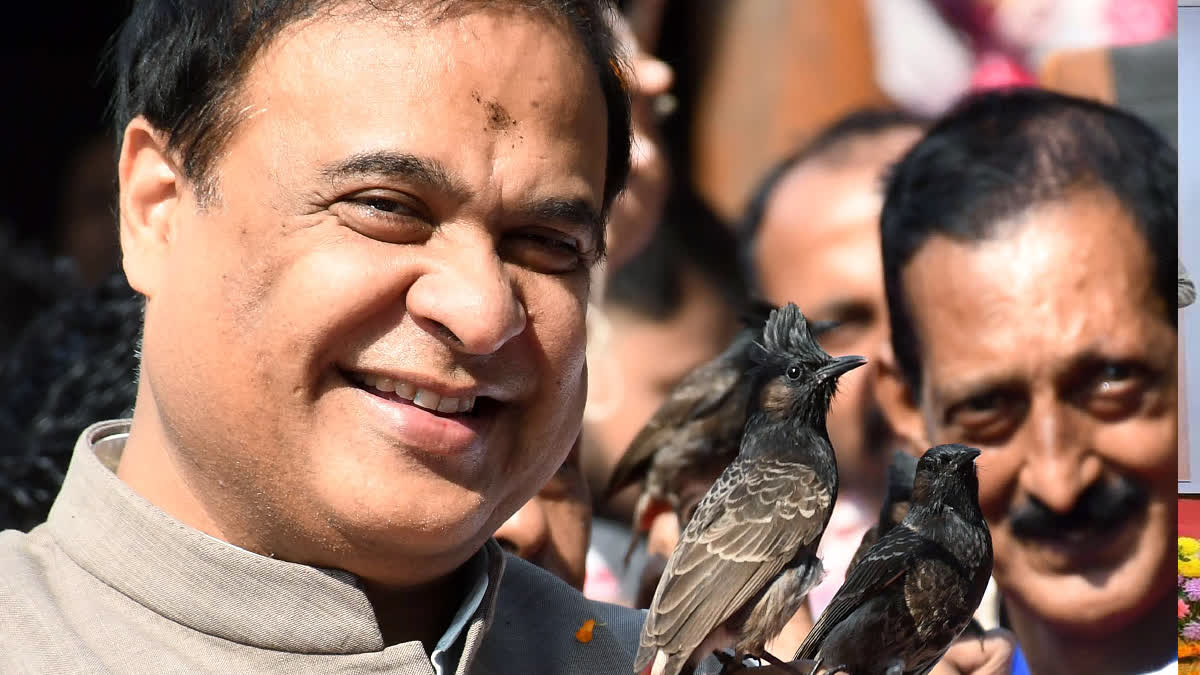Guwahati: The Gauhati High Court on Tuesday quashed a standard operating procedure (SOP) that allowed fights between buffalo and bulbul birds. The Gauhati High Court's order quashing the Assam government's order, issued on December 27 last year, will ban the buffalo and bulbul fights permanently across the state.
While the bulbul fights are conducted at the ancient Haigriva Madhav temple at Hajo near Assam's capital town Guwahati, the buffalo fights are organised at Ahataguri in Nagaon district and some other places. Both the bulbul and buffalo fights have been organised during the Magh Bihu or Bhogali Bihu, one of the most celebrated festivals in Assam. Both forms of fights are steeped in history and date back to ancient times.
The Gauhati High Court on Tuesday in response to petitions filed by People for the Ethical Treatment of Animals (PETA), India, quashed the Assam government standard operating procedures (SOP) dated 27 December 2023 which had allowed buffalo and bulbul bird fights during a certain time of the year (in January).
The petitions were listed before Justice Devashis Baruah in the Gauhati High Court and detailed submissions were made by senior advocate Diganta Das, who argued that the buffalo and bulbul fights violate the Prevention of Cruelty to Animals Act of 1960 and that the bulbul fights additionally violate the Wildlife Protection Act, of 1972, which were accepted by the court.
The Gauhati High Court further held the SOP to be in violation of the judgment dated May 7, 2014, passed by the Supreme Court in Animal Welfare Board of India vs. A. Nagaraja.
As evidence, PETA India had submitted investigations into these fights which revealed that terrified and severely injured buffaloes were forced to fight through beatings and that starved and intoxicated bulbuls were made to fight over food. PETA India had also submitted numerous examples of fights being held illegally, outside the dates allowed via the SOP, arguing that allowing the fights at any time of the year was resulting in enormous animal abuse.
"Buffaloes and bulbuls are gentle animals, who feel pain and terror and do not want to be forced into bloody fights in front of jeering crowds,” says PETA India's Lead Legal Counsel, Arunima Kedia. The PETA India said that an investigation into a buffalo fight held in Ahataguri in the Morigaon district of Assam on January 16 last year and it was found that to instigate buffaloes to fight, owners slapped, pushed, and shoved them; jabbed and struck them with wooden sticks; and pulled them by their nose-ropes to force them to approach one another.
When fights were underway, some owners and handlers jabbed the buffaloes with sticks and whacked them with bare hands to cause them further distress. The buffaloes locked horns and fought, sustaining bloody wounds to their necks, ears, faces, and foreheads – many had injuries all over their body. The fights lasted until one of the two buffaloes broke away and fled.
Similarly, the PETA India also conducted an investigation into a bulbul bird fight held in Hajo in Assam on 15 January last year that revealed that red-vented bulbuls – who are protected under Schedule II of the Wild Life (Protection) Act, 1972 – were illegally captured and incited, against their natural instincts, to fight over food.
It is reported that the birds are captured several days before the fight. Capturing protected wild birds is considered a form of hunting and is illegal, they said. PETA India’s petition to the High Court pointed out that the buffalo and bulbul fights violate the Constitution of India; The Prevention of Cruelty to Animals Act, 1960; and judgements of the Supreme Court, including in Animal Welfare Board of India vs A Nagaraja.
PETA India also notes that such fights are inherently cruel, cause immeasurable pain and suffering to the animals forced to participate, and contradict the tenets of ahimsa (non-violence) and compassion, which are integral to Indian culture and tradition.



